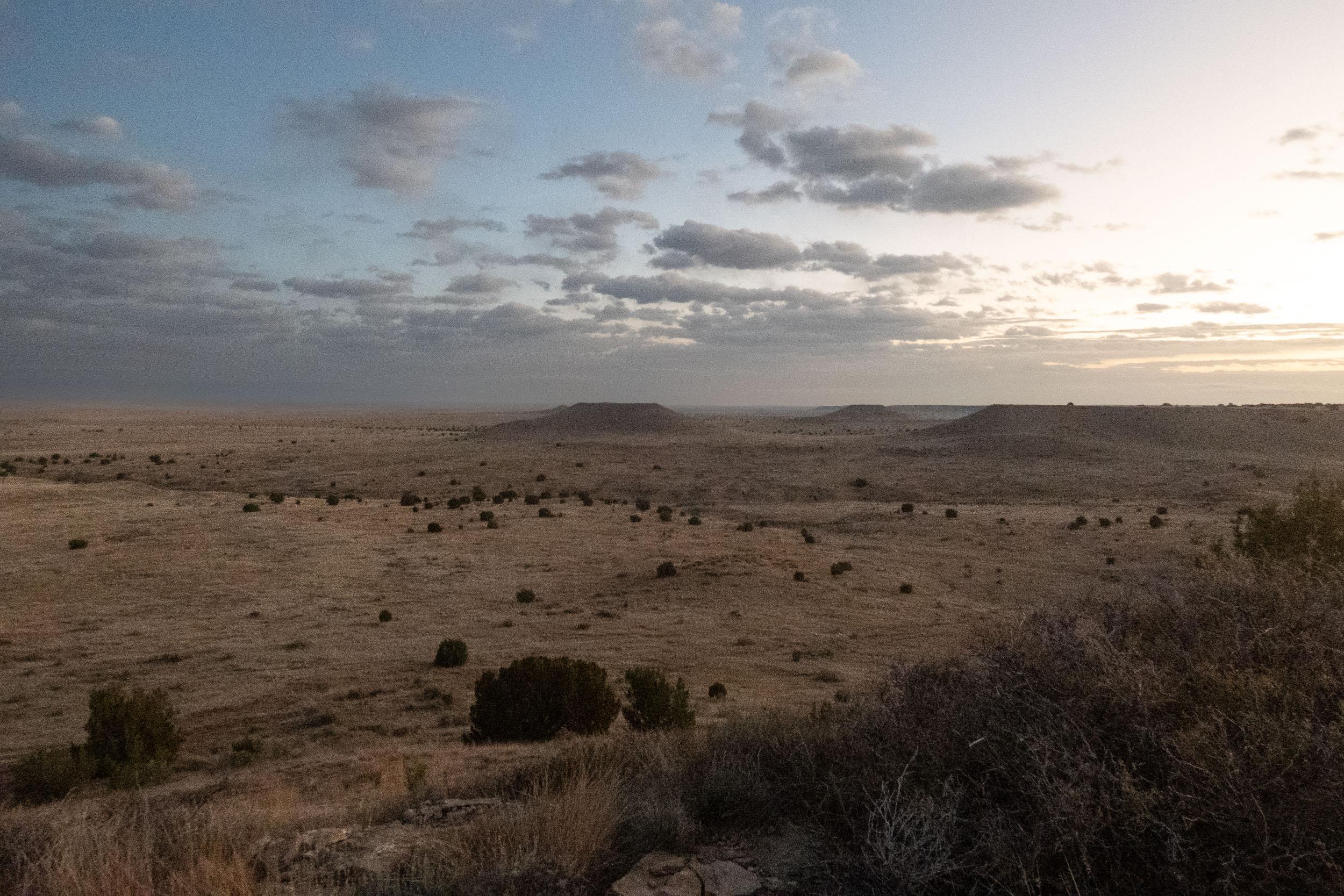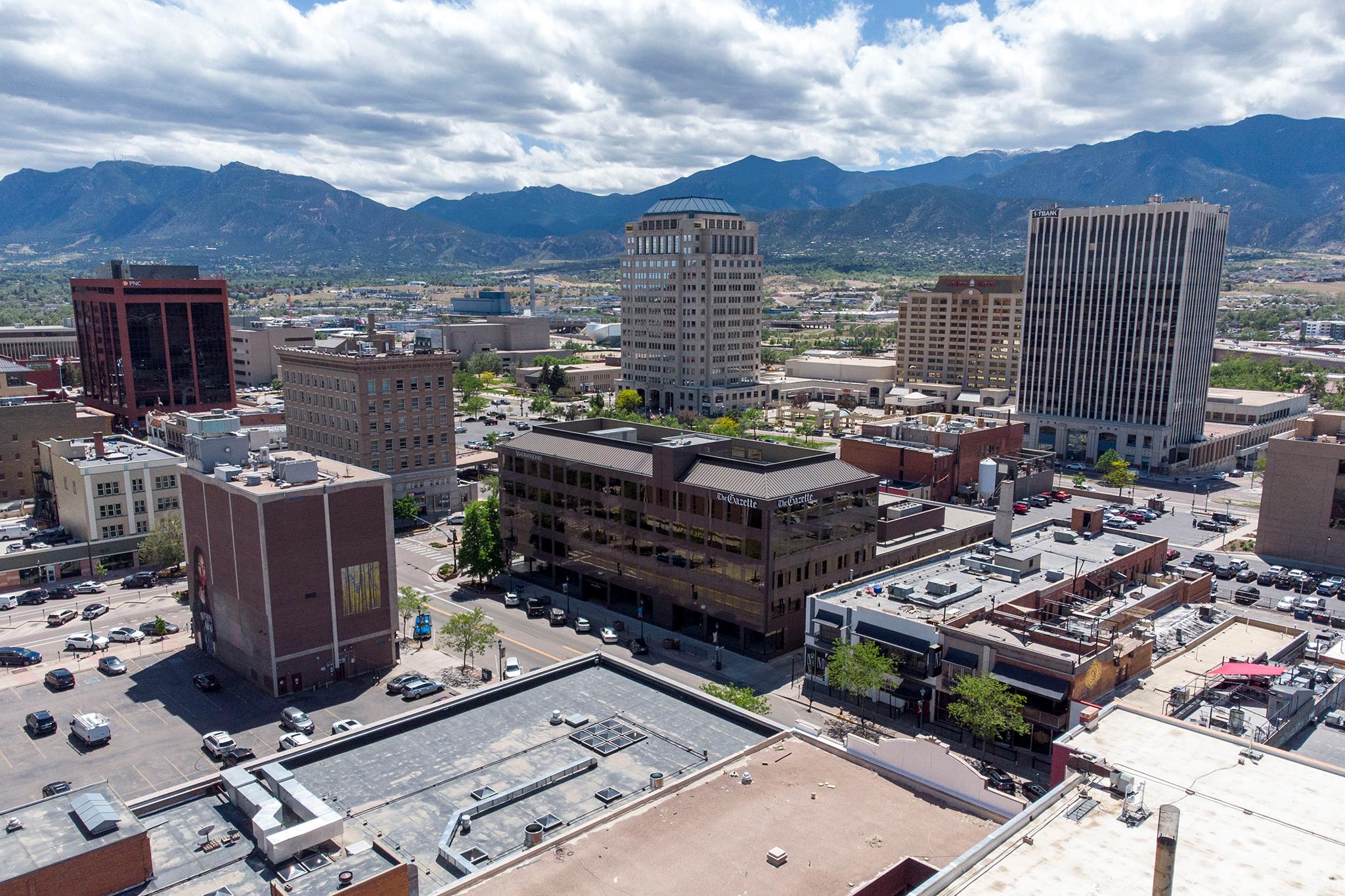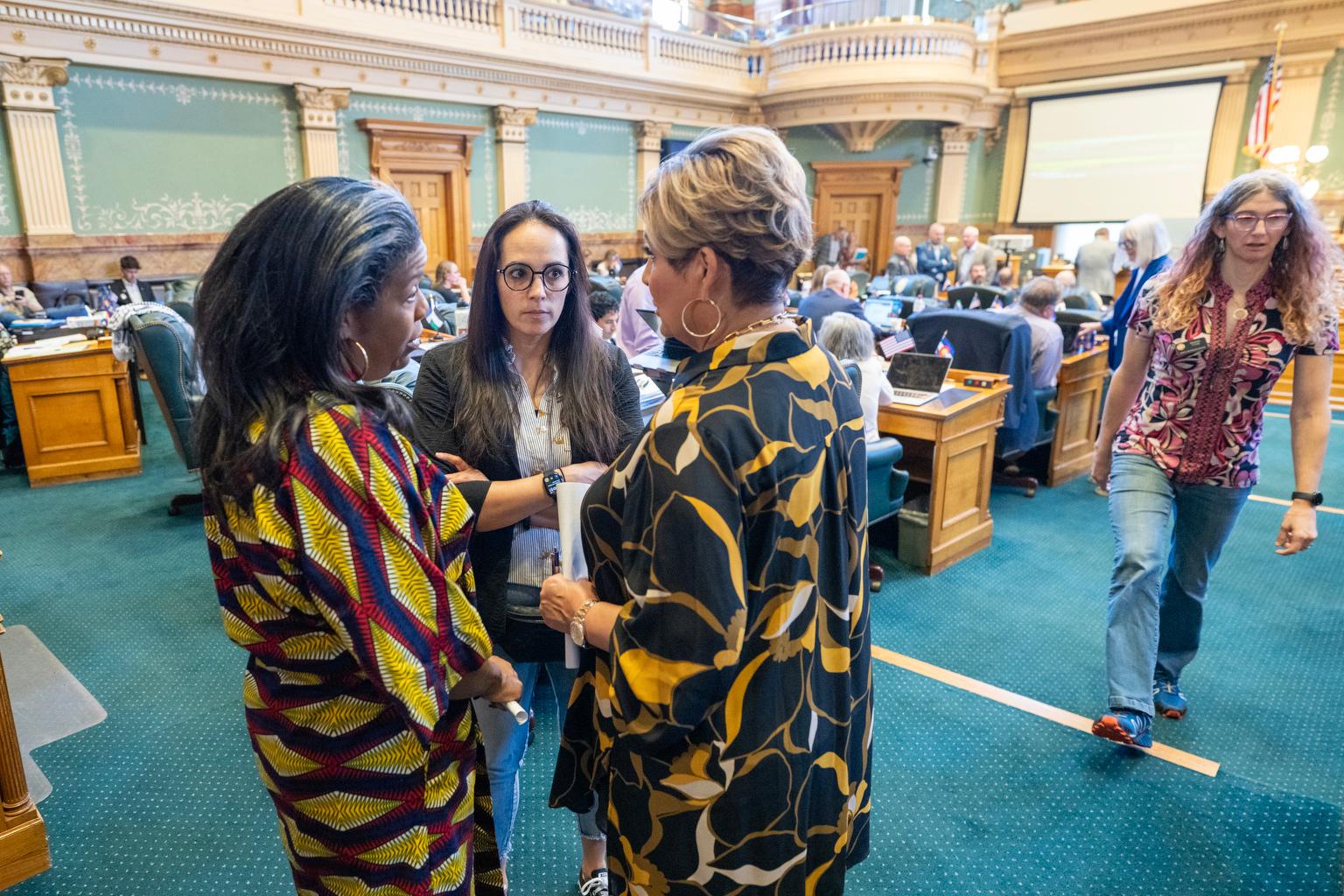
Updated 4:57, Aug. 28, 2024.
The bipartisan bill at the center of this week’s special session on property taxes cleared a crucial House vote Wednesday, 45-to-18, and has moved on to the state Senate.
But for many of the chamber’s Democrats, this compromise bill, which is intended to stave off two ballot initiatives this November, is a bitter pill to swallow.
“I think that everybody is just saying, ‘Well, we've got something that's less bad and we're okay with that,’” said Democratic Rep. Brianna Titone of Arvada in an interview with CPR News ahead of the vote. “Less bad is still bad, so why are we allowing ourselves to succumb to this kind of thing?”
The business group Colorado Concern and the conservative interest group Advance Colorado are behind the two ballot measures. Initiative 50 would cap the total dollars collected statewide in property taxes, by allowing it to increase by no more than four percent each year. Initiative 108 would sharply reduce assessment rates for homes, businesses and other properties while requiring more state money to go to schools to make up for the lost taxes.
Gov. Jared Polis called the special session after he and others reached a deal to get the groups to pull both measures. Democratic leaders said they didn’t want to roll the dice on an unpredictable outcome on election night.
“I believe that passing this bill and getting those initiatives off the ballot is the responsible and most important thing we can do today,” said House Speaker Julie McCluskie when she delivered the final remarks on the house floor Wednesday before lawmakers cast their votes. McCluskie is one of the main sponsors of the bill.
The process did not sit well with Titone and other Democratic lawmakers.
“It makes me feel resentful because we could be spending this time coming up with a thoughtful thing that's actually going to help more people,” Titone said. She did ultimately vote for the bill.
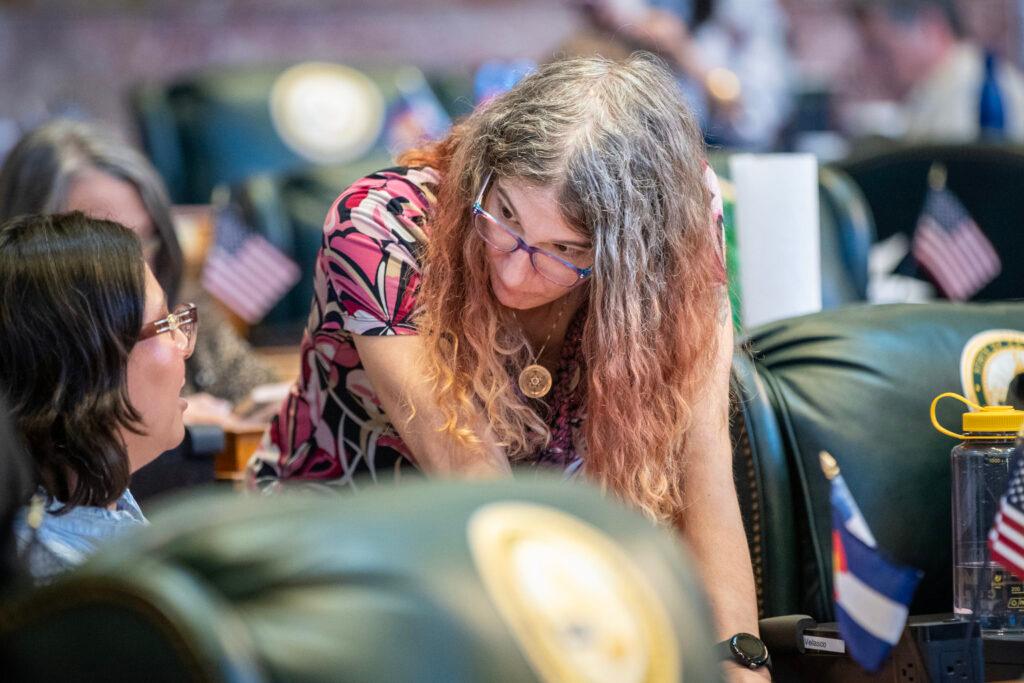
Democratic Rep. Meg Froelich of Englewood was another unenthusiastic yes vote. She referred to this week as an “extortion” session and said lawmakers have been presented with two really bad choices.
“It never feels good to give in to extortion or to let a bully win,” said Froelich in an interview with CPR News. “Certainly the average legislator was not involved in the negotiation. So we don't even really know who was in the crafting of the deal.”
A tight circle of negotiators drafted the compromise, including the governor’s office, people from the tax-cut campaign, and a handful of lawmakers, including legislative leaders as well as the top senators on tax policy, Democrat Chris Hansen and Republican Barbara Kirkmeyer.
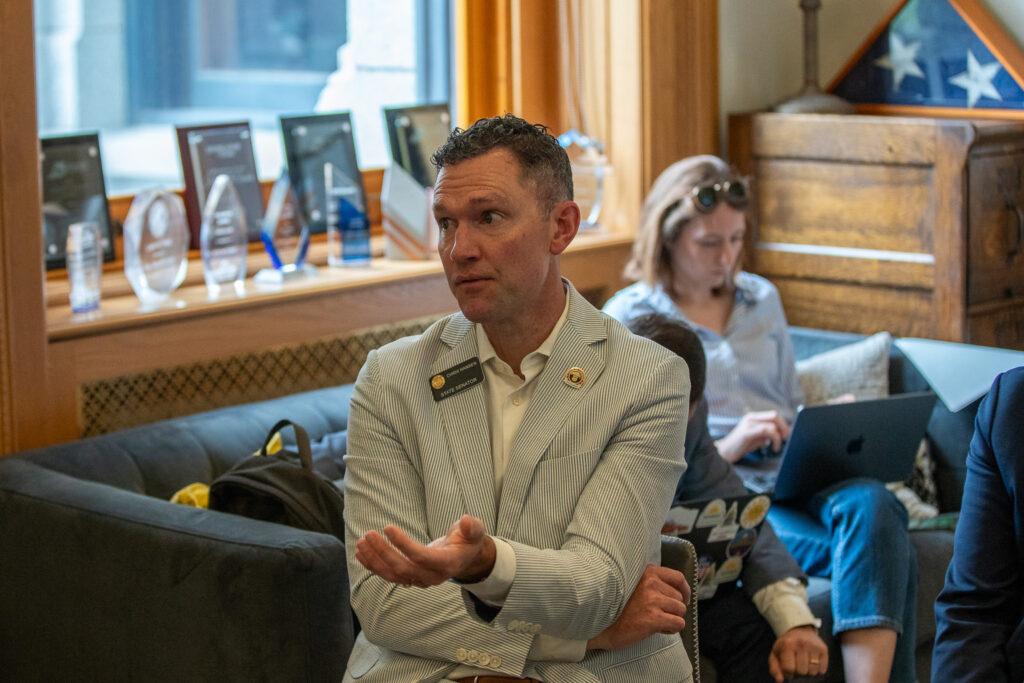
On the House floor, Rep. Tammy Story of Evergreen echoed Froelich’s sentiment. She was one of the chamber’s no-votes.
“How is this okay? Why would any of us accept this brokered deal with the expectation that legislators just fall in line?” complained Story.
But Republican Sen. Bob Gardner of Colorado Springs has little patience for that concern. He said, no matter the topic, lawmakers are expected to have discussions and educate themselves on every important bill, even if they aren’t part of discussions to craft it. And if lawmakers feel like they’ve been left in the dark, Gardner thinks they should take it up with their leaders.
“Maybe you ought to be calling some people on the phone and saying, ‘What are you guys doing and why are you doing it? And if you're expecting me to show up and vote for your proposal, then maybe you ought to explain it to me,’ which is what I do,” said Gardner.
House Bill 1001 would permanently reduce property tax rates for homeowners by 2 percent. That’s a savings of about $50 for a $500,000 home in an area with an average tax burden. It would have a greater impact on non-residential owners, reducing their rates by about 7 percent in the near term, and more in later years. That’s about $800 for a typical $1 million property.
Many Democrats are unhappy to be cutting property taxes again, noting that Colorado has among the lowest rates in the country. Some also complained the bill leaves out renters, who don’t pay property taxes. They said the state and local governments need more funds for schools and fire and hospital districts, not less.
“When the fire chiefs are telling me that what we're doing even here is going to cause personnel cuts for their department, that's real. That's not a threat,” said Democratic Rep. Chad Clifford of Centennial.
For Republican Rep. Anthony Hartsook of Parker, this session is a bit of a ‘told you so’ moment. He said Republicans have tried to pass these types of reductions for the last two sessions.
“I think it's just a shame that it took this long to get to this point of going, ‘Oh yeah, maybe we should listen to the minority party.’”
It's unfortunate Democrats are calling foul over this compromise, said Hartsook, when liberal groups have also used the initiative process as a negotiation tactic to get things they want.
“Now, when people are suffering under tax consequences and the Republicans are using the same tools, they're like, ‘Oh, that's not fair,’” said Hartsook.
In the end, the bill was opposed by 15 House Democrats and three Republicans.
“I have been a no since the beginning,” said Democratic Rep. Lorena Garcia of Adams County. “I've been a no against a special session. I've been a no to continuing further cuts.”
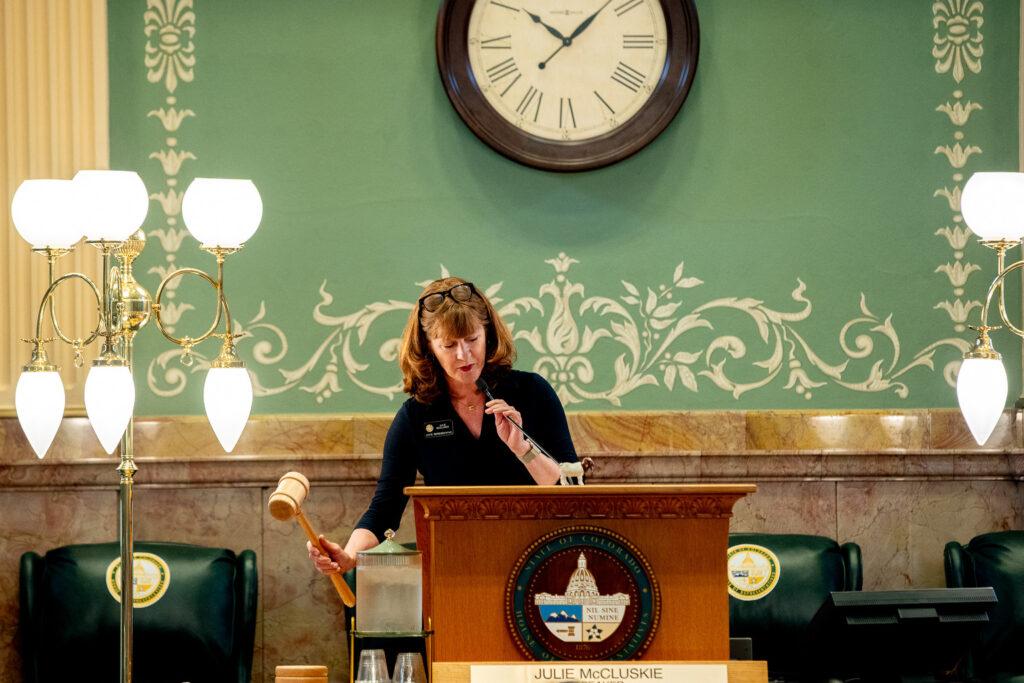
This is the second time in less than a year that lawmakers returned to the capitol for a special session on property taxes. Garcia said it sets a bad precedent; policy disagreements should be resolved during the regular session. She wishes her party had just focused on fighting the initiatives at the ballot box.
“I believe that voters would've seen through those measures. I believe that even if they didn't, there's a trend. There's evidence that voters will vote no when they don't understand something. And I feel like we actually had a much better shot at defeating these and people really wanted to accept or admit,” she said.
House Assistant Majority Leader Jennifer Bacon, who also voted no, worries that the special session sends a message to deep-pocketed interest groups. But she also had a message for anyone watching.
“If you want to tell us what to do, you need to understand, not everybody is down for that,” she said during a passionate floor speech. “We only work for the people. We may work with others, but we only work for the people.”
However, Speaker McCluskie defended the process leading up to the special session. She said the bill has been well vetted, and was shaped by feedback from local governments and school districts and lawmakers.
“Is it a move to play defense right now? You bet it is,” said McCluskie. But a move, she said, that’s necessary to protect critical services at all levels of government.
Editor's Note: This story was updated to include more detail on opponents' objects to HB-1001.

